Indigenous voice to parliament Yes campaign launches advertising blitz as support softens
The Yes campaign will launch an advertising blitz this week amid falling support for Anthony Albanese’s referendum to constitutionally enshrine an Indigenous voice to parliament.
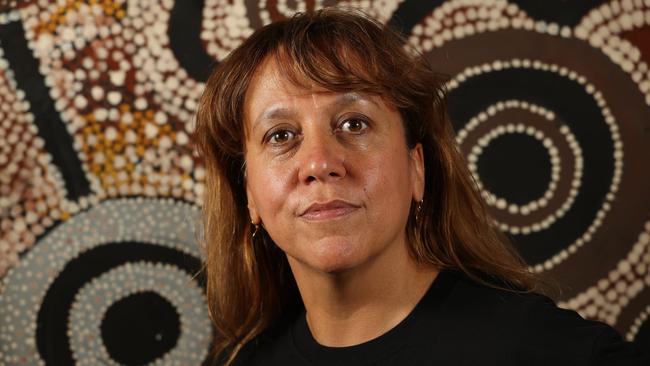
The Yes campaign will launch an advertising blitz this week amid falling support for Anthony Albanese’s referendum to constitutionally enshrine an Indigenous voice to parliament.
SEC Newgate Mood of the Nation tracking polling reveals a further softening in voter support for a voice to parliament, dropping from a 59 per cent high ahead of last year’s May federal election to 52 per cent this month.
While the survey of 1200 voters, conducted between April 13 and 18, shows a slim majority in favour of the voice, there has been a hardening in opposition to the Indigenous advisory body.
The poll, which did not reference the constitutional amendment wording that a voice advisory body would also make representations to the executive government, found opposition against the referendum had risen from 16 to 27 per cent.
With many Australians still not engaged on the referendum, which is expected in October or November, about a fifth of voters said they neither supported nor opposed a voice to parliament. The survey said 30 per cent of Australians strongly supported a voice, compared with 17 per cent who were strongly opposed.
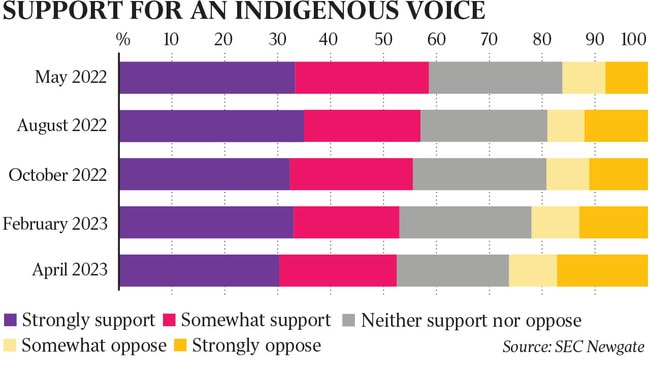
Queensland and Western Australia continue to report the softest support for the voice. In Queensland, 41 per cent of voters are in support versus 34 per cent against. In WA, the split is 43 per cent compared with 30 per cent against. An alliance of Yes supporters – backed by political advisers CT Group – on Wednesday launched its first advertisement on news websites and on television but it did not say the word voice.
Instead, the 30-second advertisement narrated by Gadigal elder Allen Madden refers to the voice without naming it, saying the referendum is a chance to “give Indigenous Australians a real say in their future”.
The advertisement is paid for by Yes23, which receives donations through Australians for Indigenous Constitutional Recognition. That organisation is a registered charity co-chaired by filmmaker Rachel Perkins and lawyer Daniel Gilbert. The largest known donation to the group is from the Paul Ramsay Foundation, which in February gave $5m to the Yes campaign.
Directors on the board of Australians for Indigenous Constitutional Recognition include non-Aboriginal business leaders Michael Chaney, the chairman of Wesfarmers, and Mark Textor, the pollster and communications strategist who co-founded global firm CT Group, formerly Crosby Textor. Indigenous people on the board include Karen Mundine, chief executive of Reconciliation Australia, and Darwin author Thomas Mayo.
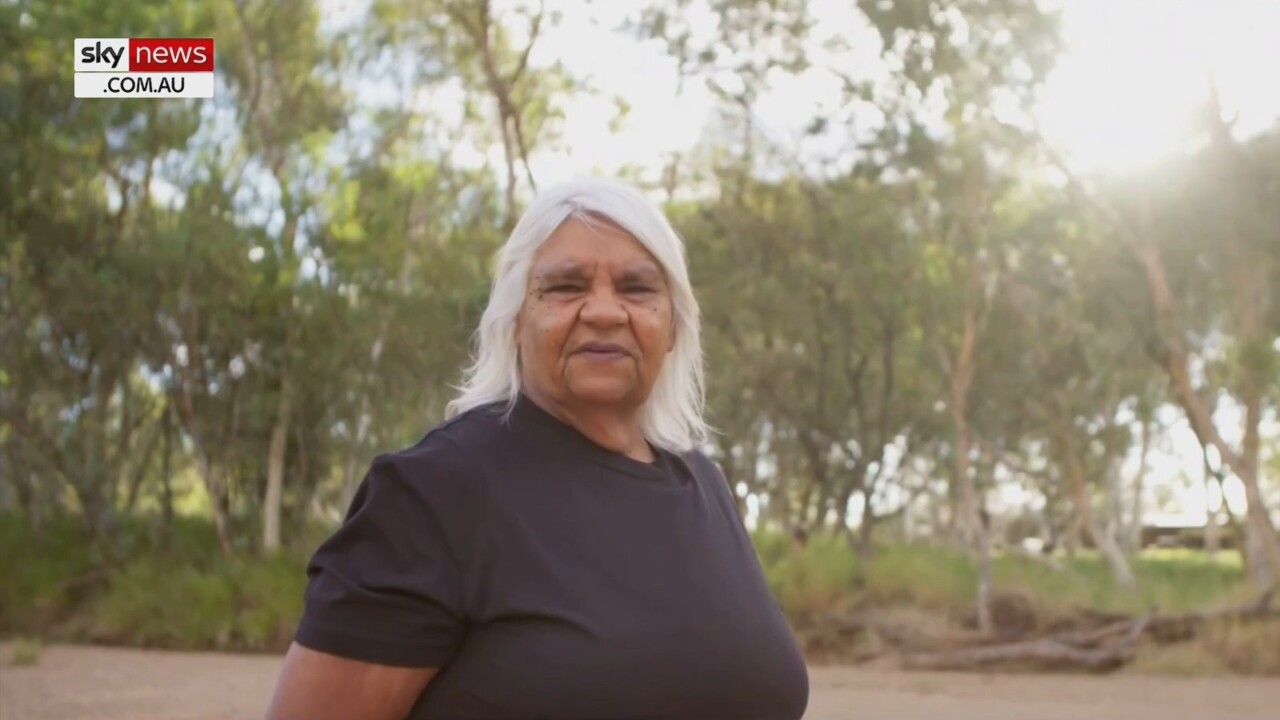
The Fair Australia No campaign, backed by conservative activist group Advance and led by opposition Indigenous Australians spokeswoman Jacinta Nampijinpa Price, launched its first major television ad last week.
The No campaign, which has run focus groups in Perth, Hobart, Brisbane and Adelaide and commissioned large sample tracking polling in WA, Queensland, South Australia and Tasmania, will focus its resources on states reporting soft support for the voice.
No campaign strategists, who have signed-up almost 90,000 supporters, will struggle to match the manpower and funding of the Yes side in the battle for votes.
There are two competing No campaigns with Warren Mundine leading the Recognise a Better Way campaign alongside former deputy prime minister John Anderson and former Keating government minister Gary Johns.

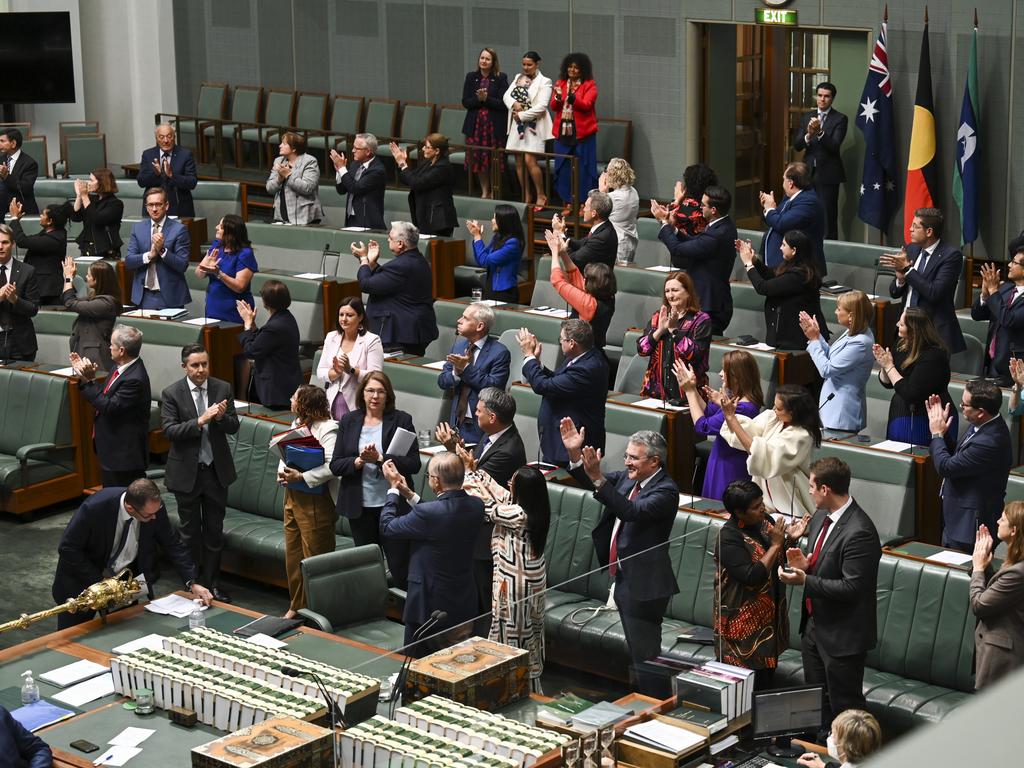
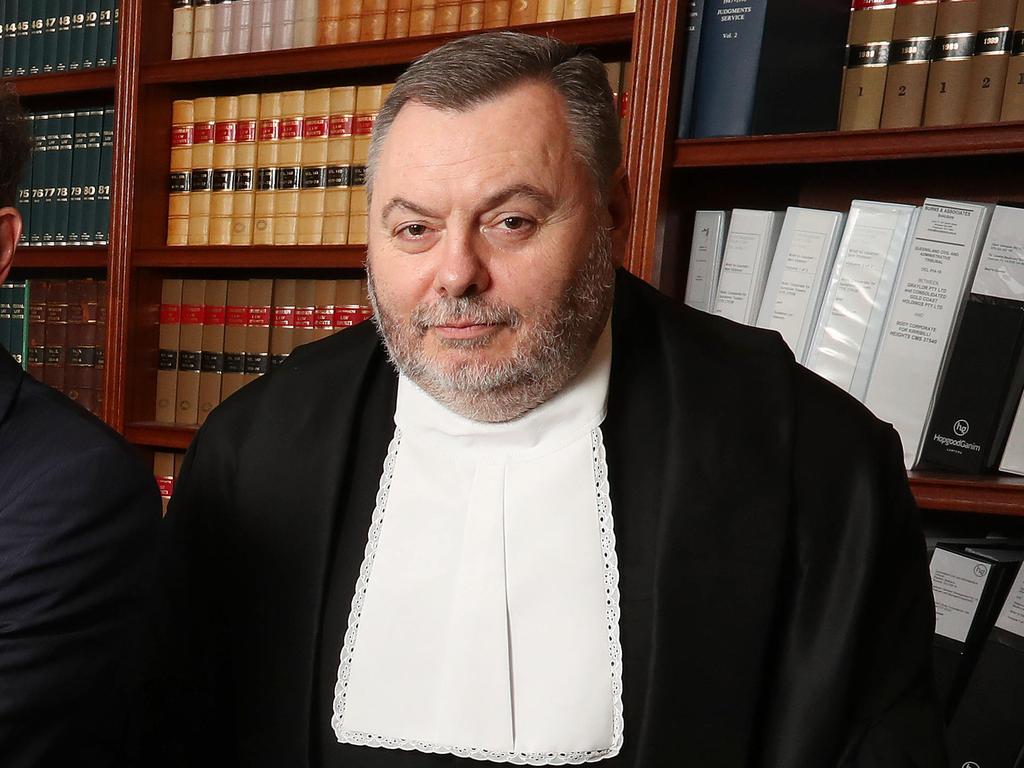
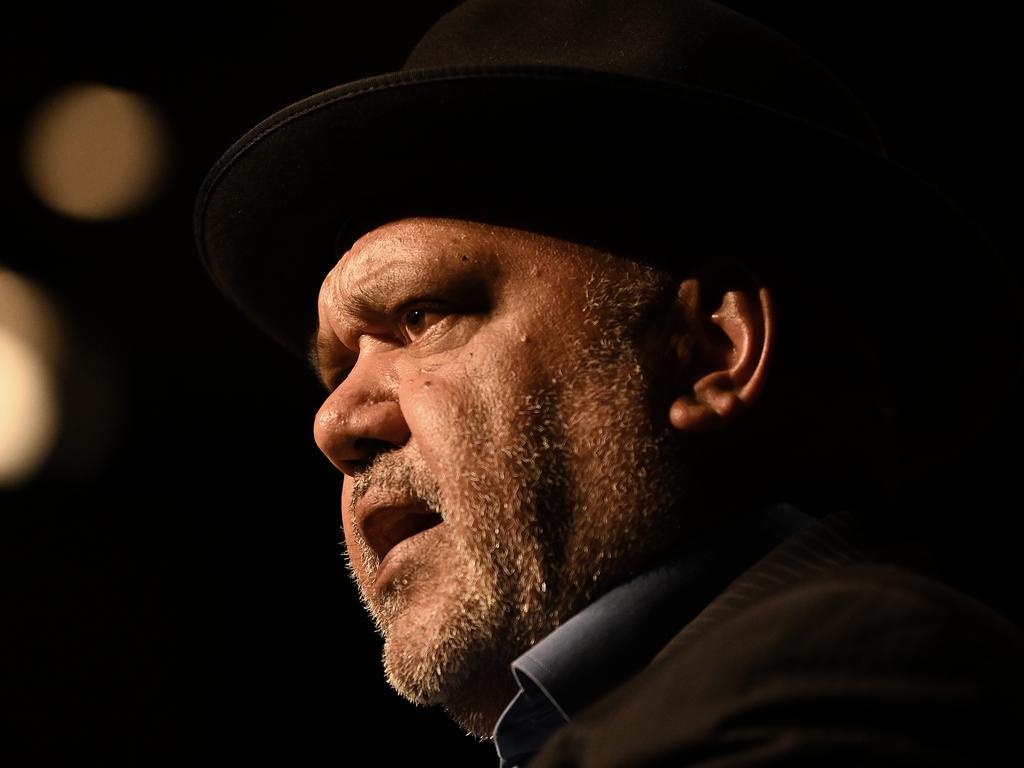
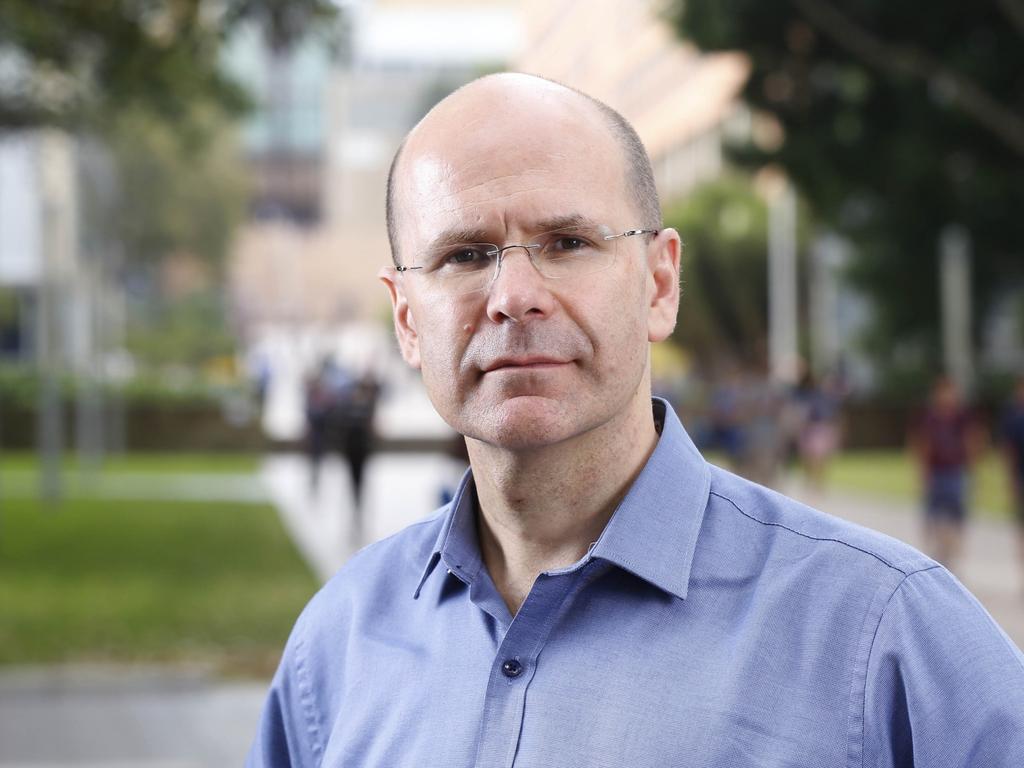


To join the conversation, please log in. Don't have an account? Register
Join the conversation, you are commenting as Logout